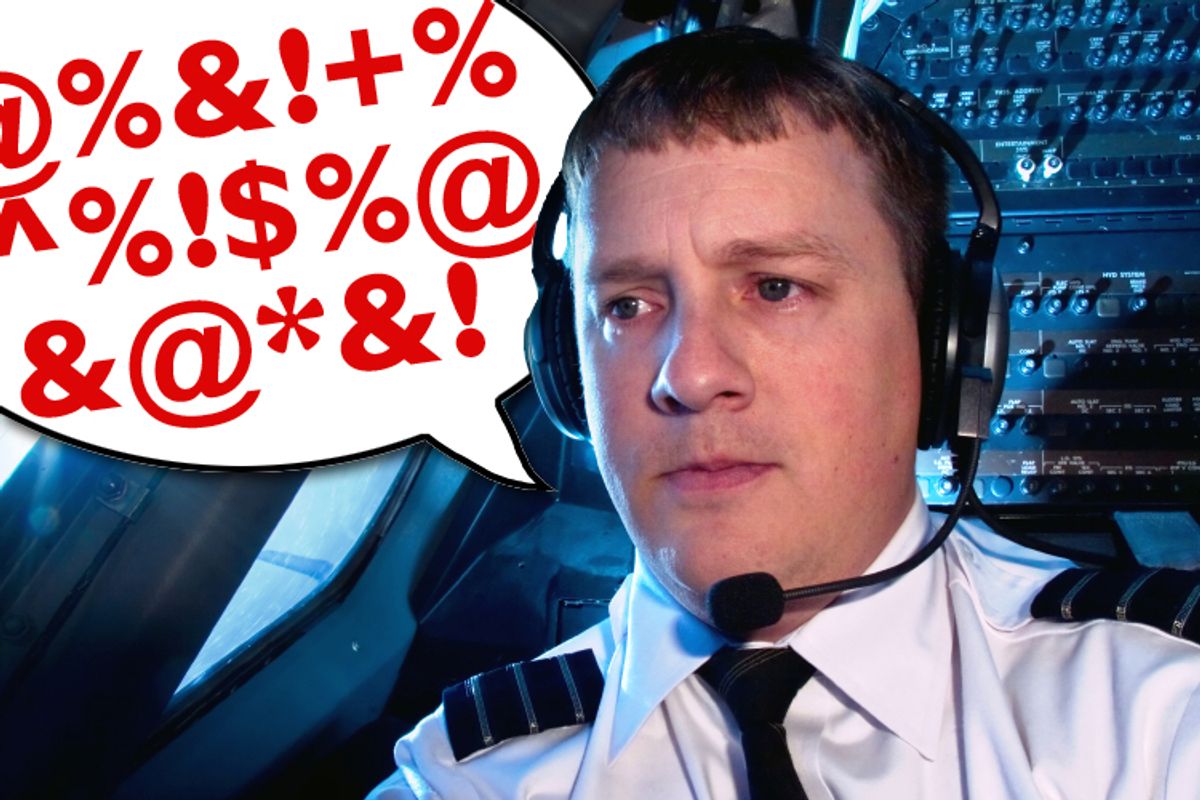At long last the black boxes from Air France 447 are giving up their secrets.
Flight 447 was the Airbus A330 that went down in the Atlantic on a flight from Rio de Janeiro to Paris two years ago, killing everybody on board. The data and voice recorders were recovered earlier this month, and late last week investigators released their preliminary findings. The key word being "preliminary." There is much we don't yet know.
This hasn't stopped the media, however, from taking the ball and running. Coverage of the findings has been thus far abysmal, bursting with caricature and gross oversimplification of what was a complicated incident. We're reading, among other nonsense, that the jetliner "literally fell from the sky."
Which it did not.
Much is being made, too, about the fact that Flight 447's captain was not on the flight deck when things began unwinding. "Captain not in the cockpit," sang one headline. An especially ridiculous NPR headline (later amended), read, "Report: Air France Pilot Resting as Plane Plunged." Another yelped incredulously at how the "copilot was at the controls."
Good grief, a copilot at the controls!
As I've explained previously in this column, transoceanic flights carry augmented crews, typically consisting of a captain and two first officers -- copilots in the vernacular. This threesome rotates through a series of breaks, and for a portion of the flight the captain will be resting while the two first officers are manning the cockpit. This is industry standard and is not the least bit unsafe.
Copilots are not apprentices. They perform just as many takeoffs and landings as captains do, and are qualified to operate the airplane in all regimes of flight, including emergencies. The captain has ultimate responsibility for the flight, and a larger paycheck to go with it, but owing to the peculiarities of the seniority system, it is not uncommon for a copilot to be older and more experienced than the captain sitting next to him.
Not only that, but copilots assigned to relief duty in the captain's seat must also be fully "type rated," as it's called, in the applicable aircraft. This is an extra step to ensure thorough familiarity with the plane and its systems. In other words, the copilots of AF 447 may have earned a somewhat smaller salary, but they carried the exact credentials of the captain. For the press to be harping on this aspect of the accident is unfair and distracting -- if predictable.
Otherwise, what we've learned from the initial findings isn't terribly different from what some of us were expecting. The jet encountered terrible weather, suffered a series of systems failures, stalled and crashed.
It's the "stalled and crashed" part that reporters are seizing on, pointing to a series of erratic -- and incorrect -- control inputs made by the pilot.
A plane stalls when, loosely put, its wings are no longer able to generate sufficient lift. This can happen for a number of reasons: flying too slowly; flying too fast; banking or pitching too steeply; or some combination thereof. All pilots experience stalls in their primary training, usually in light aircraft where the phenomenon tends to be tame. Stalling in a jetliner, on the other hand, is an extremely serious thing, and a fully developed stall may not be recoverable. For this reason, pilots always fly with a substantial buffer, at speeds and angles that are well clear of a stall onset. Nevertheless, if things go wrong, there is plenty of advance warning of an impending stall -- not only aerodynamic seat-of-the-pants cues, but cockpit alarms as well. Should a crew ever find itself in such a position, the recovery technique is piloting 101 stuff, the gist of it being that you lower the nose, not raise it, while leveling the wings and adding power.
How the pilots of Flight 447 found themselves on the verge of a stall in the first place, and why they reacted the way they did -- apparently pulling the nose up rather than pitching it forward, creating a series of worsening oscillations that ultimately resulted in a full, non-recoverable stall -- is not yet clear. It may never be understood fully.
And we're reminded of the Colgan Air disaster outside Buffalo, N.Y., in February 2009. In that instance too, for reasons unknown, the crew reacted counterintuitively to an impending stall, resulting in loss of control and a crash.
That was a different set of circumstances, though. In the case of Air France, the pilots' response to the stall was only one in a chain of events.
It is easy to look at the early report, with its voice recorder transcript and summary of control inputs, and come away with a seemingly clear picture of the crew making a bad situation worse, to the point of catastrophe. They pulled up when they should have pushed down. But was it really that simple? Perhaps they did not react exactly as they should have, but bear in mind the greater context: They were dealing with serious equipment failures -- including loss of primary airspeed data -- degraded flight controls, in terrible weather, at high altitude, in darkness. I'm surprised they stalled, but not necessarily shocked.
There are no easy answers. People want and expect something succinct -- a "cause." Was it failure of the data sensors? Was it violent turbulence? Was it pilot error? I suspect it was a combination of those things -- an unlikely but deadly cascade.
- - - - - - - - - - - -
Do you have questions for Salon's aviation expert? Contact Patrick Smith through his website and look for answers in a future column.

Shares